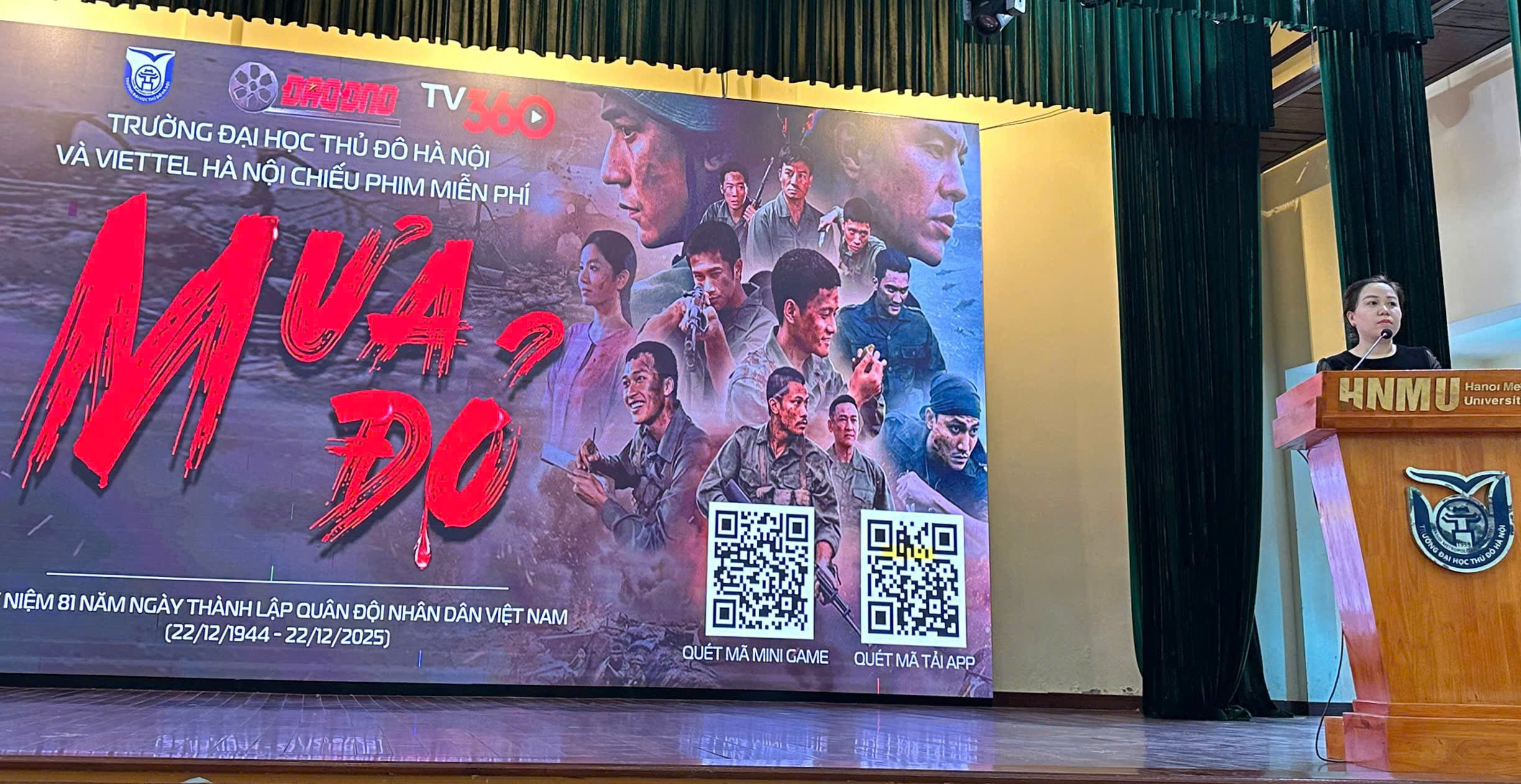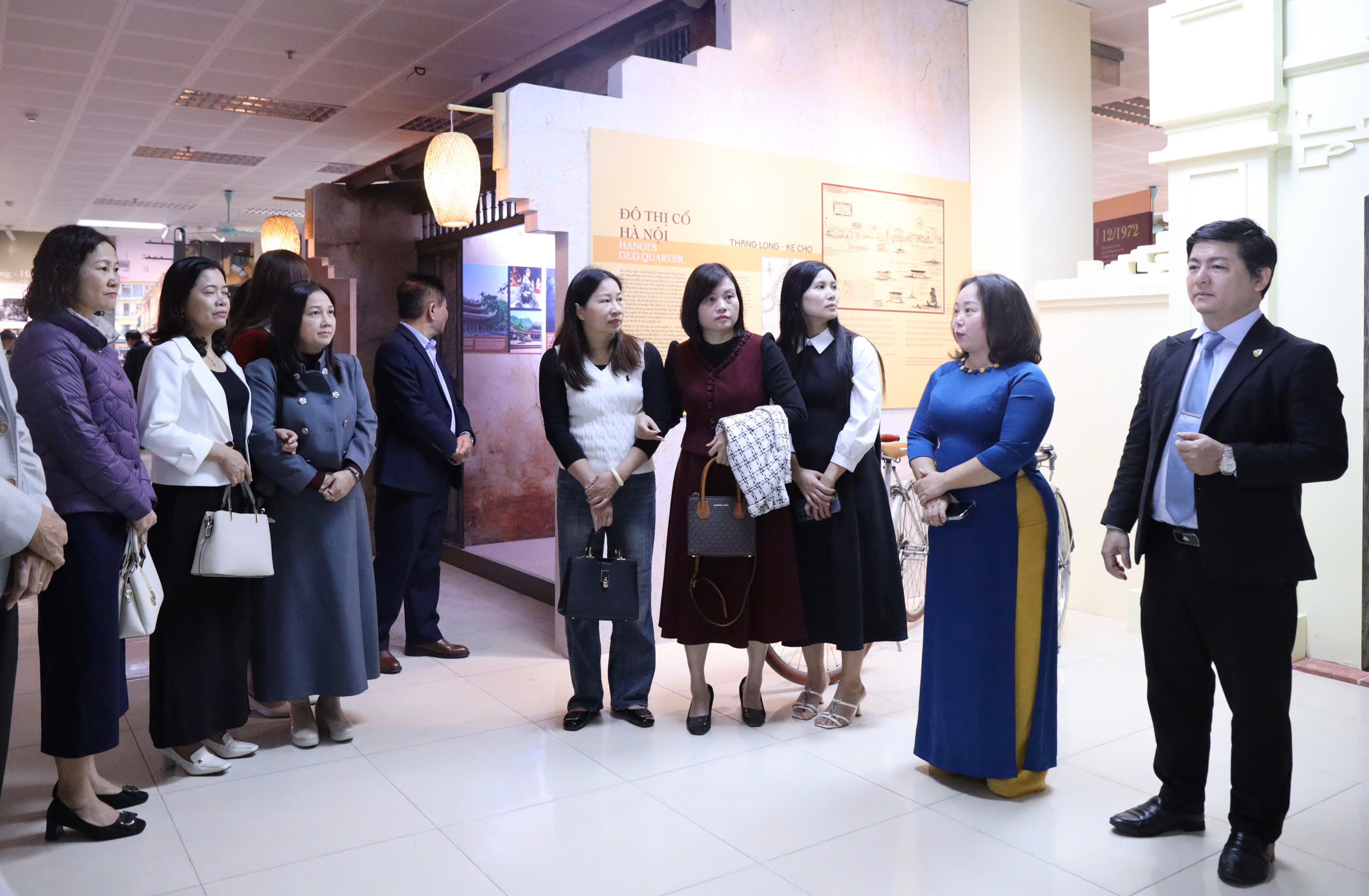Conference of Officials and Staff: Orientation for Digital Transformation, Enhancing Quality, and Sustainable Autonomy for the 2025–2026 Academic Year
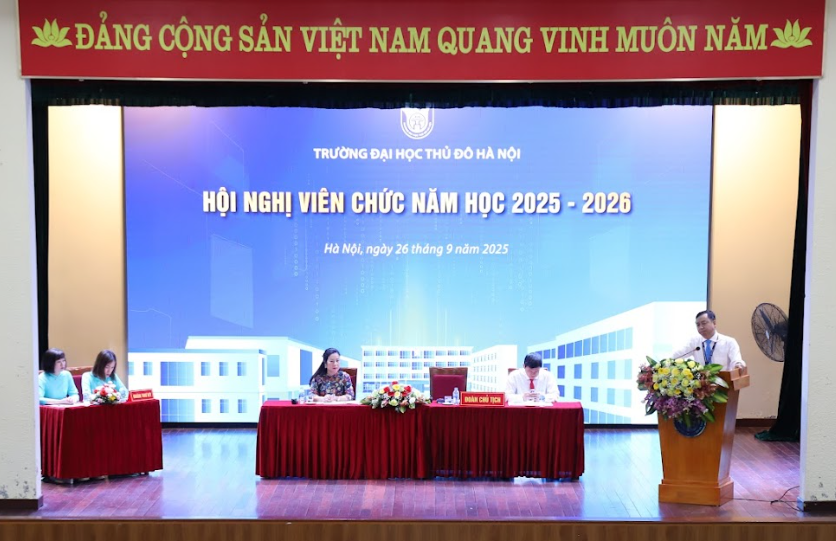
On September 26, 2025, Hanoi Metropolitan University held the Conference of Officials and Staff to review the outcomes of the 2024–2025 academic year and agree on key objectives for the new school year. The conference covered important items such as reports, orientations, tasks, discussions, and the adoption of resolutions.
According to Assoc. Prof. Dr. Đỗ Hồng Cường, Rector of the University, in 2024–2025 the institution had 439 staff, lecturers, and employees (including 10 Associate Professors, 89 PhDs, 267 Masters), and 59 doctoral candidates. The total enrollment reached 9,023 learners (7,072 undergraduate students; 560 master’s students; 38 PhD candidates, etc.). With this team, the University regularly reviewed and monitored the implementation of individual and unit responsibilities, as well as issued regulations and policies on schedule.
In administration and governance: 100% of management documents were reviewed and processed promptly. The “one-stop, interlinked service” model was applied, bringing improvements in administrative reform.
In training: Undergraduate admissions achieved good results, meeting the enrollment targets, with admission scores increasing across several disciplines, especially in education. For the 2025–2026 academic year, 28 programs were revised or newly developed; new majors such as Informatics Education, English Education, and Economic Management were launched. The University also implemented dual-degree programs, organized internships, thesis defenses, and graduation assessments on time.
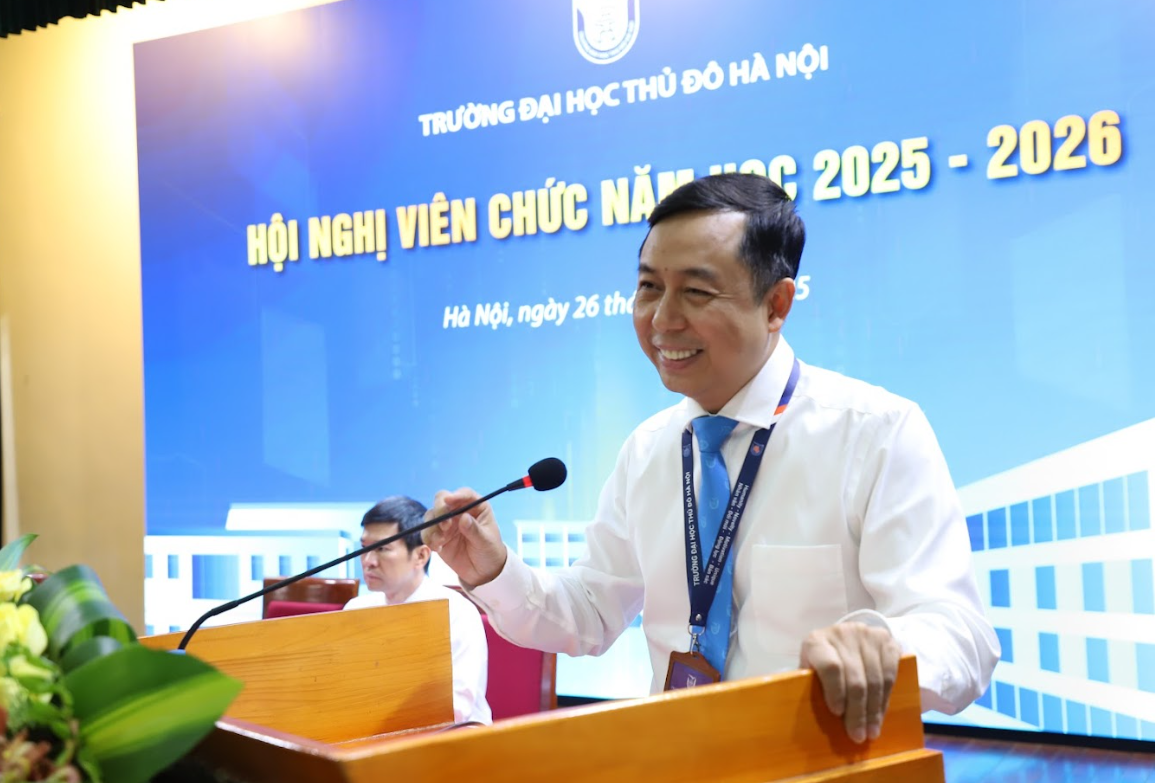
Assoc. Prof. Dr. Đỗ Hồng Cường, Rector of the University, presenting activities in the 2024–2025 academic year and directions for 2025–2026
Notably, in testing and quality assurance, the University reviewed its question bank, organized nearly 2,000 exams; finalized the Assessment Handbook; 15 training programs received accreditation; 8 programs underwent external evaluation; and the University continued moving toward AUN standards.
The 2025–2026 academic year will also see many international publications, city-level research projects, and international and national conferences. Academic and student exchanges with domestic and international partners will expand. The student research and innovation movement is vibrant. Student affairs, Union, and Association activities achieved many awards; cultural, sports, and community activities were strengthened; more student clubs were established, increasing experiential opportunities for learners.
With these achievements, Hanoi Metropolitan University was awarded the Prime Minister’s Certificate of Merit for its contribution to teaching “Hanoi Studies” to teachers and students in the city from the 2019–2020 to 2023–2024 academic years, contributing to improved human resource quality and building a cultured, civilized Hanoi. The University also received the Emulation Flag as “Excellent Unit in the Emulation Movement” for 2024, among many other collective and individual honors.
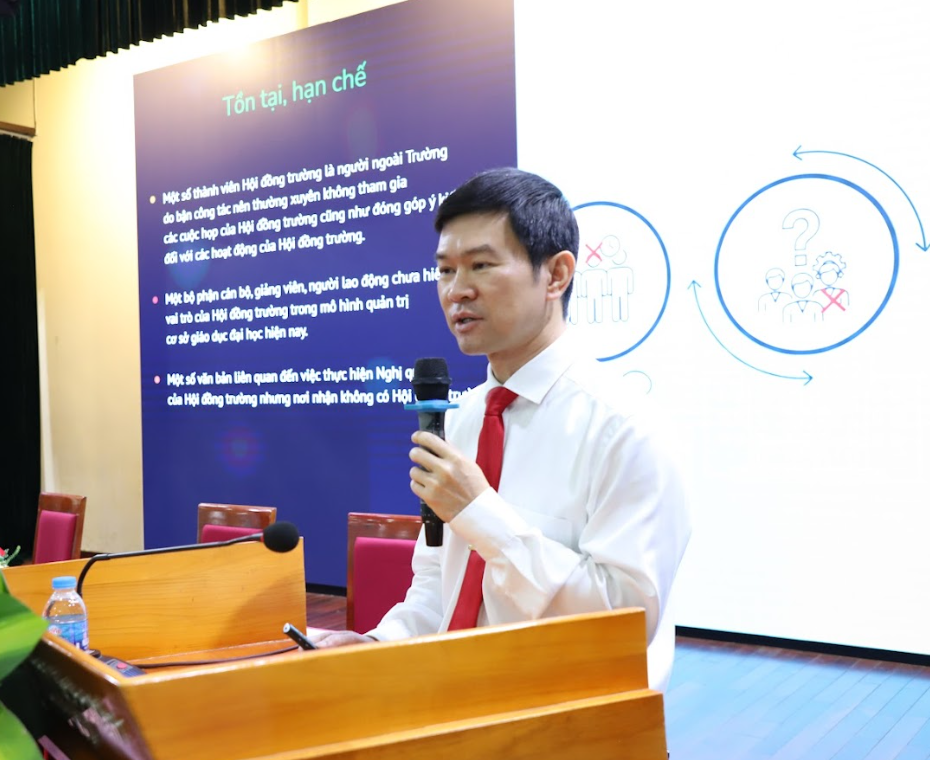
Assoc. Prof. Dr. Nguyễn Anh Tuấn, Chairman of the University Council, reporting on the Council’s activities
These achievements are a foundation for Hanoi Metropolitan University to enter a new stage of development with higher requirements for quality and governance.
For the 2025–2026 academic year, the University identified its core task as vigorously implementing the Development Strategy/Project for 2025–2030, mobilizing resources from all units, focusing on seven priority areas, and closely linking with the City’s science and technology programs. This approach strengthens internal capacity while expanding cooperation and research in key fields such as artificial intelligence, digital transformation, creative education, tourism – culture, urban development, and environment.
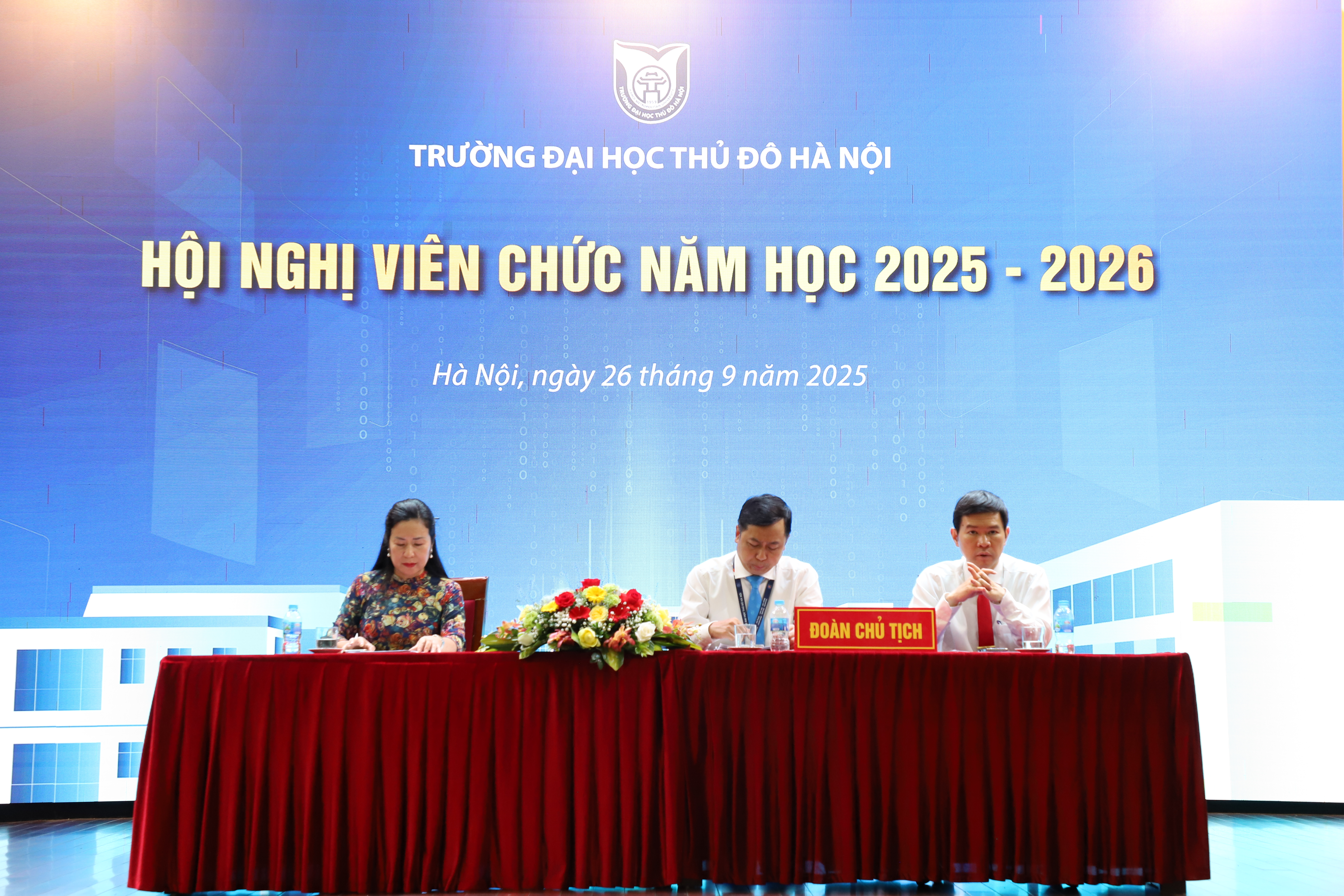
Presidium of the Conference
Along with the strategic orientation, the University emphasizes comprehensive digital transformation in governance and academics: reviewing regulations, streamlining procedures, enhancing online service portals and e-books for teaching and learning, and especially applying artificial intelligence in training, research, and quality assurance. Comprehensive digitization promises to shorten processing time, improve transparency, and provide a consistent experience for learners.
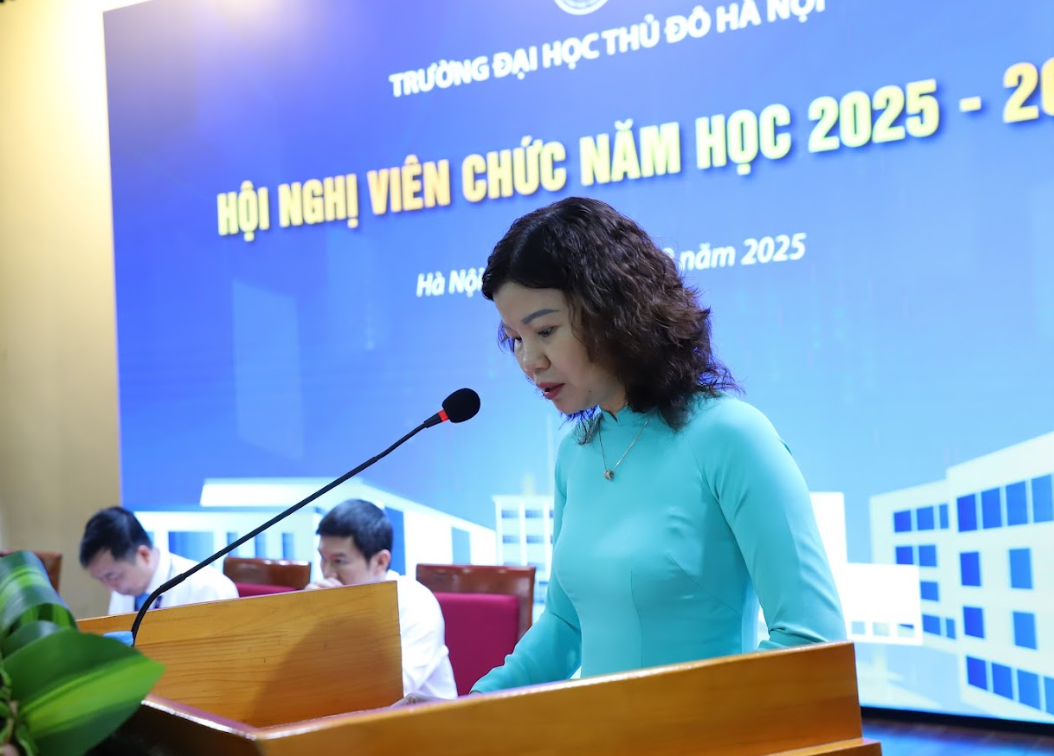
Representative of the People’s Inspectorate reporting on activities
Faculty and staff development is considered the “key” to realizing the strategy. The University requires stronger discipline in execution, transparent task assignments, regular performance evaluations; at the same time, holding leadership meetings to ensure smooth direction. Moving toward a governance model based on competence and outcomes, this approach creates motivation for lecturers and staff while improving student services.
In training, the University continues to standardize learning outcomes with a focus on digital and language competencies, expanding formal and non-formal programs, while strengthening training partnerships with localities and employers to diversify legitimate revenues, supporting the autonomy roadmap. Program development goes hand in hand with practical training – internships, business and alumni connections, forming an ecosystem that supports student employment.
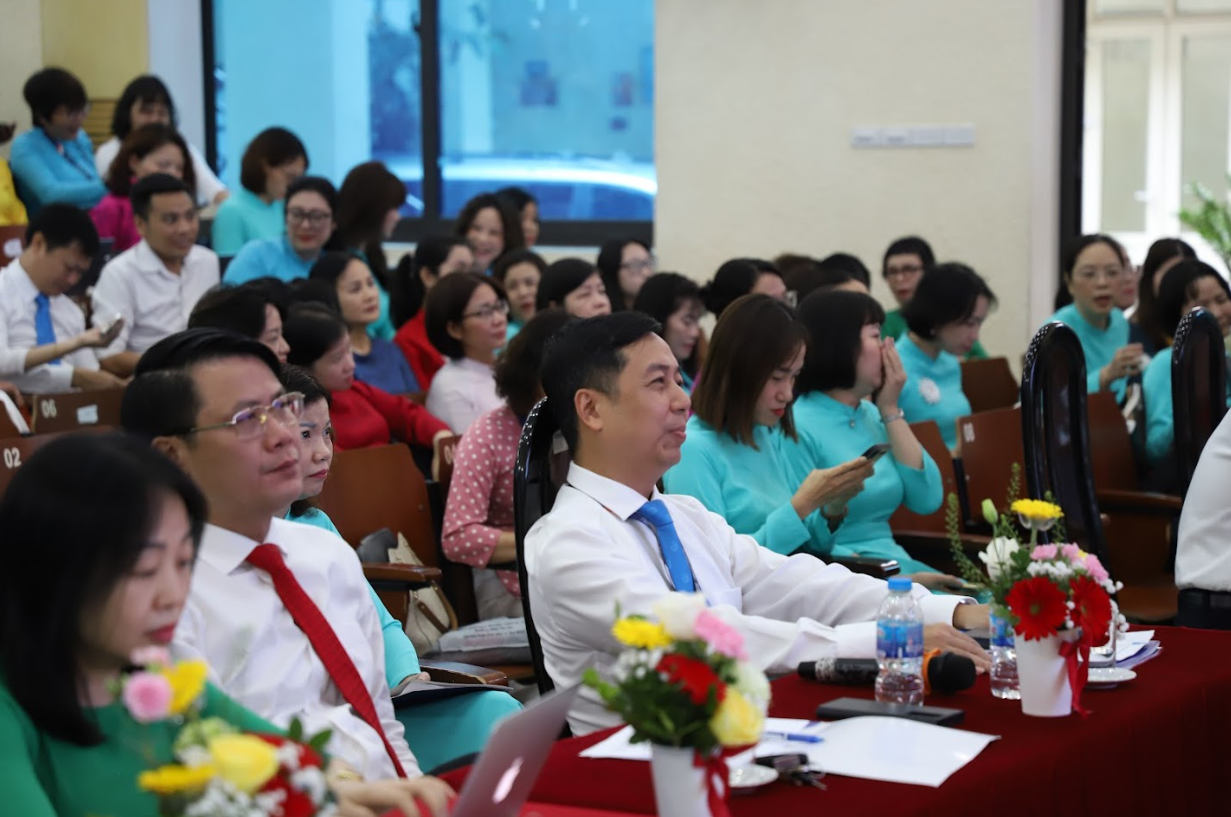
Quality assurance and testing will continue to be improved under new standards: building a synchronized exam bank for the 2025 programs, publishing the Student Assessment Handbook, maintaining compliance with current higher education regulations, and progressing toward completing AUN-QA accreditation. Transparent measurement and evaluation systems are expected to clarify output standards, laying a foundation for continuous improvement.
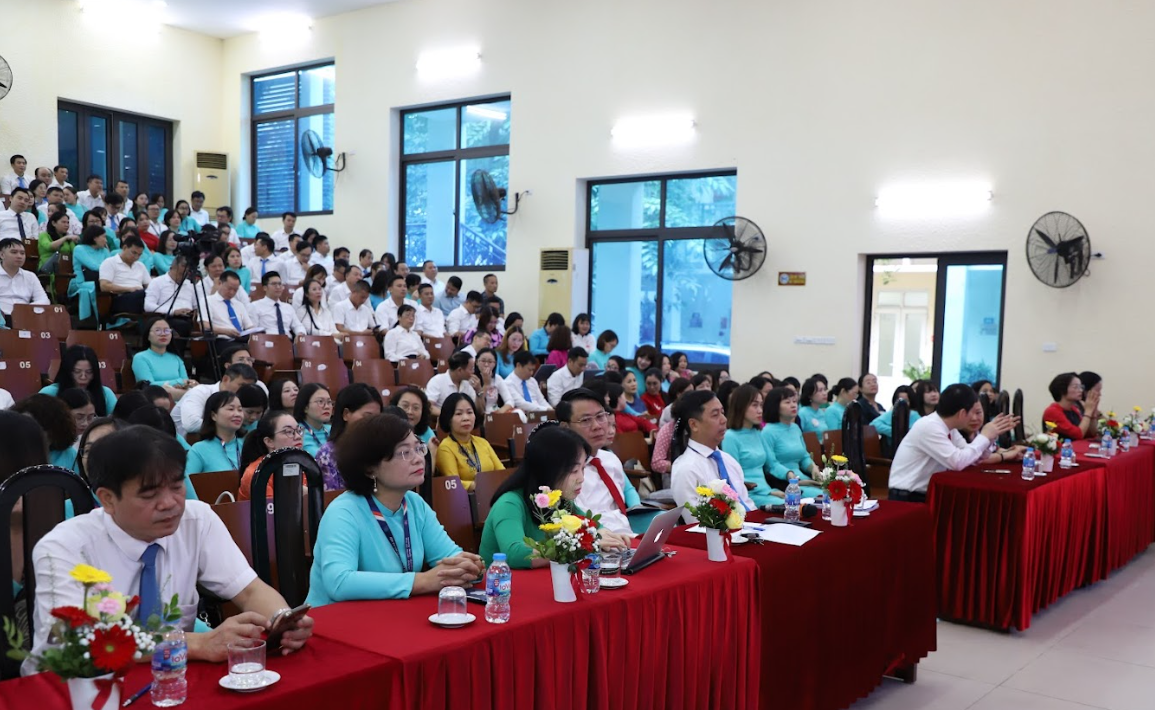
In addition to training and governance, the University prioritizes building a safe, friendly, and happy academic culture, enhancing student clubs, expanding cultural and sports activities, and promoting values education. This provides a foundation for nurturing student identity while projecting the image of a modern, humanistic higher education institution of the Capital.
At the Conference, representatives of the University leadership discussed and responded to staff and faculty concerns on facilities; admissions and training; science, technology, and equipment; finance; and training partnerships. Issues on finance, facilities, human resources, and professional development attracted particular attention.
At the end of the program, the conference adopted a resolution and assigned units to develop quarterly plans, linking leaders’ accountability with results. With determination in digital transformation, quality enhancement, and sustainable autonomy, Hanoi Metropolitan University looks toward 2025–2026 as a year of acceleration, effectiveness, and strong impact in training, research, and community service.


